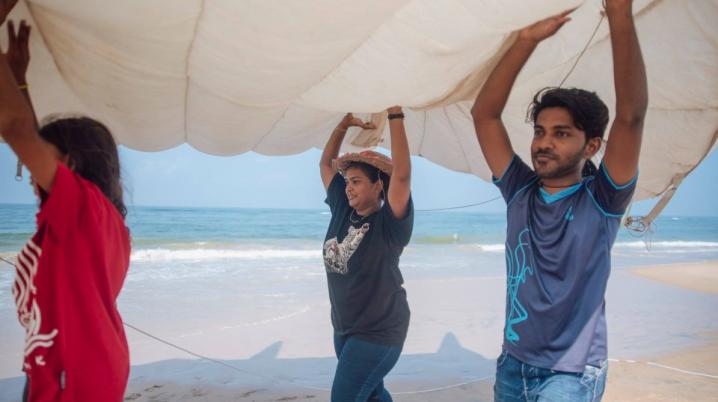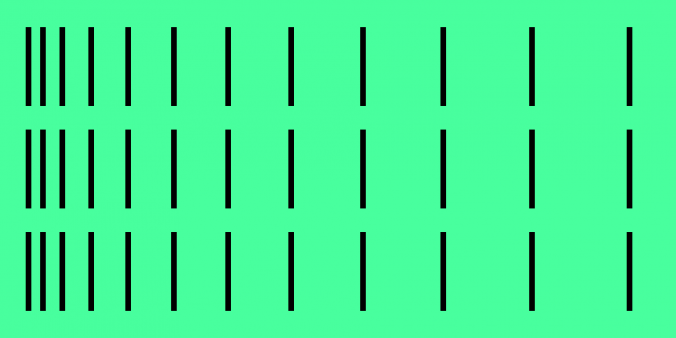
New EUNIC President: “Only a joint effort can bring true change for cultural relations”
EUNIC – European Union National Institutes of Culture – is the key network in the field of cultural relations in the European context. Its priority is to showcase the diversity and richness that European culture(s) has to offer. In it, the National Institutes of Culture of European countries –from Instituto Cervantes in Spain to the Lithuanian Cultural Institute – are united. It is a network established in over 90 countries with over 120 clusters, drawing on the extensive experience of the members from all EU member states and associate countries.
EUNIC advocates a more prominent role of culture in international relations and is a strategic partner of the EU, actively involved in the further definition of (foreign) European cultural policy. It is a platform for knowledge-sharing and for capacity-building amongst its members and partners.
Clusters
The clusters are instrumental to the way EUNIC operates. While its headquarters, the Global Office, is based in Brussels, the clusters are the antennae of the network, composed by at least three EUNIC members in a particular area. The Global Office functions as the backbone and resource centre for all the clusters worldwide. Every cluster organises their own projects, accordingly to their capacity, and works together with local partners in order to ensure support and augmenting interest from its audience. For an overview of all clusters in the world, have a look at this map. DutchCulture has been an active member of the EUNIC network for many years and is also one of the founding members of the cluster in the Netherlands.
Interview with Cees de Graaff
And so, the end of 2020 marks a significant moment for DutchCulture. Its director, Cees de Graaff, was voted in as the new President of EUNIC at the General Assembly in October. In this interview, he talks about cultural relations in challenging times and the priorities and added value of his presidency.
Now that we are battling the impact of the global pandemic, what can be EUNIC’s contribution to the overcoming of the crisis?
"For the first time in EUNIC’s history, our members jointly drafted an advocacy statement to remind our partners and political leaders of the importance of keeping alive cultural exchange across borders. It’s shocking to see that before our intervention, for instance, the advice of the Dutch Council for Culture to the Minister of Culture on cultural recovery did not even mention the words ‘international cooperation’. And this silence is true for most EU countries! Cultural relations not only bring awareness that culture is transversally important in all strands of society, but they can also bring a sense of global solidarity.
If sustaining cultural sectors during this crisis is already a challenge in EU countries, how trying must it be in countries that don’t have a strong public support system for the culture and creative sectors? Therefore this year’s EUNIC Cluster Fund had the focus on supporting local cultural scenes worldwide. 27 projects have been selected this year, and EUNIC members together with partners in more than 40 countries will engage in programmes dedicated to recovering from Covid-19. The projects that will be implemented have a total budget volume of more than 800,000 euros."
What do you believe is the value of cultural relations in today’s world, both inside the EU and outside the EU?
"Our motto is to create trust and understanding through culture. This is at the heart of what we do. And we do that in a spirit of global solidarity. In these disruptive times, we still need to initiate co-created, collaborative projects with our partners in arts, education, development, heritage and all the other fields we engage in."
A lot of our members expect budget cuts for cultural relations. How will you strengthen European cooperation in culture in these difficult times as president of EUNIC?
"I will be working closely with the EUNIC secretariat in Brussels, which does a fantastic job in our advocacy efforts in Brussels talking to the European Parliament, European Commission, and the EEAS. But each member is needed to join the cause, by organising advocacy events directed to political leaders and other stakeholders to underline the importance of cultural relations.
The Statement we published in June, called For the Future: Make cultural relations count in a post-crisis global society, is a starting point and could be introduced to your national partners in politics and culture. Only a joint effort can bring true change to cultural relations.
We are pleased the CULT committee of the European Parliament understands the importance of culture and particularly cultural relations, and that other cultural networks such as Culture Action Europe, Europa Nostra and the European Cultural Foundation join this plea."
Your presidency comes suddenly and is, due to the late start in October rather than June, a bit shorter than other presidencies. What priorities do you have?
"I love talking with people, exchanging ideas and meeting new colleagues. That’s why we are launching a set of Zoom calls with our members. We started with the newly elected Board of Directors – we have welcomed four completely new members to the Board and have one of the most diverse Boards in geographical and gender representation as well as a good balance between cultural institutes and ministerial members –, followed by heads who recently took their role, and are now moving along to meet with heads of EUNIC members I personally have not yet had the chance to engage with so much. So one of my priorities will be to bring the network closer together on a very personal level.
We also need to focus in the next months on accompanying the pilot projects under the European Spaces of Culture, our flagship activity project we are realizing together with the European Commission and the European External Action Service. In Mongolia, for instance, culture serves as a vector to open minds on environmental awareness. And in the US, colleagues have set up a platform for exchange between the tech industry in Silicon Valley and the arts. A specially designed award will honour collaborative initiatives that have successfully implemented art thinking in tech development processes.
These projects have been delayed or changed by the global pandemic, and now we need to get them to continue their activities. Our final policy recommendations will be presented in May at a conference in Brussels, and we aim to make the European Spaces of Culture initiative a permanent one."
Within the spectrum of EUNIC, DutchCulture has a strong record in producing international arts events, most recently the “Forum on European Culture” and the “Infected City” series. How do you plan to enrich EUNIC bringing in the specific strengths of your
"One topic we have worked on in the past is fair practice in international cultural collaboration. Together with IETM and On the Move we produced a toolkit for the performing arts sector. EUNIC’s homework as instructed by last year’s GA is to produce a similar toolkit for fair practice in our line of work, cultural relations, and here we can work closely with our colleagues from the network.
We can also put our experience with conferences and festivals to the benefit of EUNIC – recently we too changed our productions to hybrid formats, most recently with the Forum on European Culture and the Infected Cities series. DutchCulture is deeply rooted in the arts, and my own personal background is in cultural management. I’m looking forward to bringing this particular perspective to our EUNIC tasks."
What does your presidency mean for DutchCulture and the network of Dutch embassies engaged in cultural relations projects worldwide?
"With the increased visibility of DutchCulture, we hope to motivate even more colleagues working in Dutch embassies on the ground to join collaborative work in the framework of EUNIC projects. They can always turn to our office in Amsterdam for advice or any question about how EUNIC works, and we will support where we can."
The EUNIC president chairs the General Assembly and the Board of Directors and represents the network as a whole. They serve a period of one year.
Cees de Graaff was elected President of EUNIC in October 2020. He has been DutchCulture’s director and its predecessor, SICA, since 2010. Previous roles include working for the Youth Circus in Ethiopia (2001-2004), independent consultancies and management positions in the arts sectors with a focus on music, dance and cultural heritage. Cees is the Chairman of the Board of Rialto Film and World Cinema Amsterdam and is a Board Member of MOTI – Museum of Tomorrow International.
Find out more about EUNIC.


